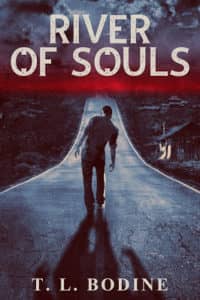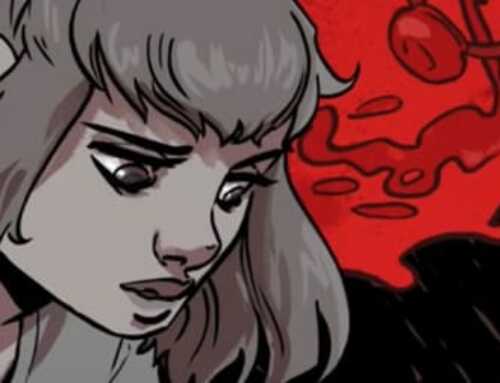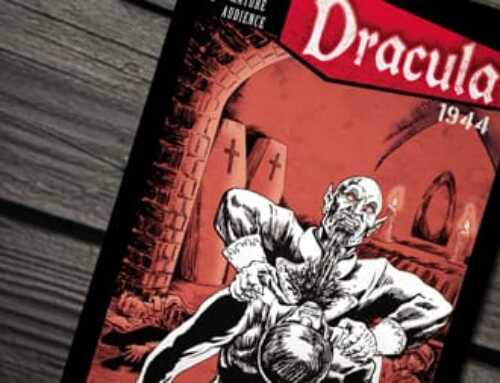 It’s exceedingly rare that I find anything involving zombies interesting. They’re tired monsters that have been massively overexplored (dare I say exploited?) in modern horror as cardboard cutouts which have left any degree of character behind in the wake of the early 00’s zombie revival. We’ve delved so deeply into zombies that one of the most popular IPs of the subgenre, The Walking Dead, rarely uses the dead at all beyond plot convenience and an aesthetic backdrop. This is what makes T.L. Bodine’s newest novel, River of Souls, so refreshing– the concept of the nonviolent undead isn’t necessarily new, but the way Bodine approaches the situation allows for a much deeper dive into the concept while providing insightful social commentary and a relatable protagonist.
It’s exceedingly rare that I find anything involving zombies interesting. They’re tired monsters that have been massively overexplored (dare I say exploited?) in modern horror as cardboard cutouts which have left any degree of character behind in the wake of the early 00’s zombie revival. We’ve delved so deeply into zombies that one of the most popular IPs of the subgenre, The Walking Dead, rarely uses the dead at all beyond plot convenience and an aesthetic backdrop. This is what makes T.L. Bodine’s newest novel, River of Souls, so refreshing– the concept of the nonviolent undead isn’t necessarily new, but the way Bodine approaches the situation allows for a much deeper dive into the concept while providing insightful social commentary and a relatable protagonist.
The first fifty or so pages of the novel are dedicated to worldbuilding and tone. In a novel that clocks in at less than two hundred and fifty pages, this may seem like a heavy investment, but the context and “rules” of this particular strain of zombieism are fundamentally necessary to the narrative. This first section is also the most important in establishing Davin as a down and out young adult struggling to make ends meet in a seemingly hopeless situation. Davin is characterized primarily through his relationships: following the death of his father, he’s had to make the difficult decision to drop out of school in order to care for his sixteen-year-old sister Zoe. Before the two have had time to process the loss, their father rejoins the living and, for reasons that remain unclear, has retained a near alcoholic stupor.
It’s easy to identify with Davin despite the fact that few among us face such harrowing personal circumstances, as nearly anyone under the age of thirty-five can attest to the socioeconomic crush that has left Davin stranded in (in this case a not so metaphorical) wasteland. The interactions between Davin and his father are especially biting, as the exhaustion of having to care for the nearly vegetative man is palpable, and the guilty relief of no longer having to provide for him is dead on. This is a personified examination of the need to cut off detrimental family members, while the need to care for Zoe is treated as a given rather than as a hindrance. The contrast helps to distinguish the point, that while there are some friends and family members which we need to distance ourselves from however guilty we may feel, there are others who we would struggle to keep close no matter the sacrifice or personal cost.
Another element of the novel which is incredibly effective is the sources of its horror. The fear is never that a thousand living dead are going to crash through hastily made barricades and overrun the last bastion of human resistance– its all much more personal than that. There’s a lot of body horror here, which can feel trashy if it isn’t handled well, but it never feels exploitive or out of place. The physical gross-out elements of storytelling are all practically considered and metered out so as never to feel like a point we’re dwelling on. It’s simply there, and always just a little off-putting.
There’s also a lot of anxious tension with regards to resource management, but where in traditional zombie fiction the resources would be bullets and shelter, River of Souls focuses instead on money, food, and the need to parse out Lazarus like an addict. There’s an air of scarcity in the plot which is reflected in the small-town New Mexico setting. Everything is in short supply, and as those supply lines begin to dry out the characters are dragged along in large part by necessity. It’s allegorical but manages to avoid feeling overly preachy, as the plot and the characters mostly stay engaging without staring directly at the reader.
There is, however, one thematic element that I wish had been explored in some greater detail. Throughout the novel, the government is characterized as behaving very suspiciously toward the undead, requiring that zombies register with the federal government, and later very enthusiastically rehoming them in detention center-like care homes. Through Zoe’s (admittedly sometimes a bit obnoxious) outspoken internet advocacy of the undead, we’re also exposed to the growing trend of police violence towards the zombies, who in some cases are clearly not guilty of wrongdoing. The problem is this– the government seems suspect because, until the climax of the novel, we never see zombies truly go berserk. The question isn’t just one of whether the government should be allowed to act this way, but whether or not there’s any threat from the undead and whether or not Lazarus is necessary to their continued non-aggression at all.
That is, until we see definitive proof that the undead can lose themselves and viciously slaughter bystanders, which paints the whole issue in an uncomfortably grey light. Granted, the incident in question didn’t conclusively have anything to do with Lazarus at all, but it feels like there could have been a way to push the plot which didn’t require so much speculative hand waving. That said, it is nice that this novel approaches social issues without trying to provide a truly definitive answer to them. Bodine uses the situation to make the point: it’s obvious the government is being overzealous in its handling of the undead, but to what extent will depend to some degree on your interpretation. Zombie traditionalists (is there such a thing?) may not appreciate this take on the undead horde, but River of Souls is a solid recommendation for the socially conscious and those looking to explore more personal horror.







